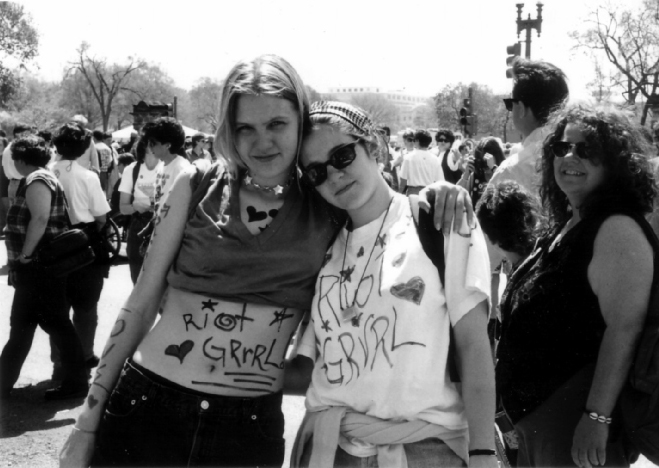In this article, Katerina Paramana introduces Lateral’s special section, “Political Economy and the Arts,” and its first set of articles, “Performance and Political Economy: Bodies, Politics, and Well-Being,” and provides the rationale and context for this section’s topic. In the face of a multiplicity of world-wide problems and suffering, this special section aims at a reinvestment in desire for change in order to resuscitate and reinvest in hope. The articles therein provide insights into the current relationship between politics, human and non-human bodies, and their well-being (and why it is necessary we take action to change it) which might help us steer the wheel before we drive off the cliff.
Keyword: bodies
Conscious Delirium of a Traveling Body: The Poetics and Politics of a Creative Practice
The question of political economy in the arts offers a way into a creative-critical reflection on the challenges associated with navigating identity labels and living a freelance artist’s life pressured to conform to institutional expectations particularly within the UK’s art scene. This piece is a personal account of a body resisting becoming a symbol, of staying conscious of our socio-political landscape and the ongoing Israeli settler-colonialism. I draw on examples from three of my artworks: the collaborative project From the Lips to the Moon, ongoing nights of longform improvised music and poetry in London; In Observance, a performative research and intervention at the United Nations in Geneva, involving archival documents related to Palestine; and Mishandled Archive, which involves dispersing family photographs and documents in public places, accompanied by daily dances. Through these works, this essay asks: How can historical evidence of imperialism and settler-colonialism be absorbed or resisted within the body? How can we transform loss into movement and togetherness? How late is too late as mounds of rubble and bodies multiply?
Border Trash: Recovering the Waste of US-Mexico Border Policy in Fatal Migrations and 2666
This article examines how discourses of waste and wastefulness are applied to the bodies of border crossers and border dwellers along the US-Mexico border. Using Josh Begley’s 2016 digital memorial “Fatal Migrations” alongside the fourth section of Roberto Bolaño’s 2666, I examine how the matter of bodies plays an essential role in border policing. Forced into isolated and environmentally hostile areas, migrants are only visible through discarded objects, left behind during border crossing. As a result, American policy and discourse is able to associate migrant bodies with the trash they leave behind—effectively reducing migrant bodies to disgusting and ecologically dangerous. I look at “Fatal Migrations” to consider how the landscape is deployed against migrants and the vibrancy of their bodies after death. This reading leads to a consideration of waste across the border as seen in the fourth section of Roberto Bolaño’s 2666, “The Part about the Crimes.” A fictionalized representation of the feminicides in Ciudad Juarez, Bolaño’s narrative shows the reduction of women’s bodies to capitalistic waste. Taken together the two pieces illustrate the dismissal of bodies to waste and wasteful under overlapping immigration and economic policies. Moreover, both pieces show how death in the borderlands is central to American understandings of sovereignty. The result is increasingly militarized environments and solidified borders in the form of physical structures, cultural attitudes, and policy.
Review of Fearing the Black Body: The Racial Origins of Fat Phobia by Sabrina Strings (New York University Press)
In Fearing the Black Body, Sabrina Strings argues that the origins of present day fat phobia stem from moral and scientific shifts of the Enlightenment period. Affected by a history of racial slavery in America and other parts of the world, the religious, medical, philosophical, and aesthetic opinions of elite white men shaped how the white woman’s body became representative of nationhood through its ascriptions as morally right in its svelte figure. The black woman’s body, ostensibly the complete opposite (i.e., obese and worthy of denigration), consequently became the basis for the favored white woman’s essentialized attributes.
Review of Sensual Excess: Queer Femininity and Brown Jouissance by Amber Jamilla Musser (NYU Press)
In Sensual Excess, Amber Jamilla Musser develops an epistemological project that calls into question modes of producing knowledge around black and brown bodies, especially in relationship to femininity and queerness. In doing so, she interrogates the kind of racialized understandings of femininity produced by what Hortense Spillers has called “pornotroping” in order to draw a contrast to something Musser calls “brown jouissance.” She is looking for those places where fleshly experience exceeds the ideological constraints of the pornotropic image, developing an epistemology based not on the visual, but on the affective experiences of the flesh. In doing so she analyzes Lyle Ashton Harris’s Billie #21 (2002), Judy Chicago’s The Dinner Party (1979), Kara Walker’s A Subtlety (2014), Mickalene Thomas’s Origin of the Universe 1 (2012), Cheryl Dunye’s Mommy is Coming (2012), Amber Hawk Swanson and Sandra Ibarra’s Untitled Fucking (2013), Carrie Mae Weems’s From Here I Saw What Happened and I Cried (1995–1996), Nao Bustamantes’s Neapolitan (2003), and Maureen Catabagan’s Crush (2010–2012).
I Can Sell My Body If I Wanna: Riot Grrrl Body Writing and Performing Shameless Feminist Resistance
Leah Perry presents a feminist history of Riot Grrrl and Kathleen Hanna in order to explore the hope and the limits of an individualist revolution in the 1990s. Perry takes on the performance of shamelessness, embodied in Hanna’s songs as well as through bodywriting, sex work, zine production, and other aspects of the riot grrrl movement. Ultimately Perry exposes the position of these performances: they are alternative youth culture for certain subjects which both work against and from within the structures of neoliberalism. Perry concludes that shamelessness might remain a promising space for an urgent anti-racist, feminist politics, if it can work to destabilize power and center women from oppressed groups.





